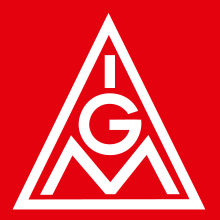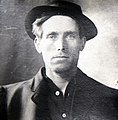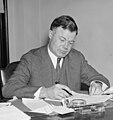
Introduction

- In trade unions, workers campaign for higher wages, better working conditions and fair treatment from their employers, and through the implementation of labour laws, from their governments. They do this through collective bargaining, sectoral bargaining, and when needed, strike action. In some countries, co-determination gives representatives of workers seats on the board of directors of their employers.
- Political parties representing the interests of workers campaign for labour rights, social security and the welfare state. They are usually called a labour party (in English-speaking countries), a social democratic party (in Germanic and Slavic countries), a socialist party (in Romance countries), or sometimes a workers' party.
- Though historically less prominent, the cooperative movement campaigns to replace capitalist ownership of the economy with worker cooperatives, consumer cooperatives, and other types of cooperative ownership. This is related to the concept of economic democracy.
The labour movement developed as a response to capitalism and the Industrial Revolution of the late 18th and early 19th centuries, at about the same time as socialism. The early goals of the movement were the right to unionise, the right to vote, democracy and the 40-hour week. As these were achieved in many of the advanced economies of western Europe and north America in the early decades of the 20th century, the labour movement expanded to issues of welfare and social insurance, wealth distribution and income distribution, public services like health care and education, social housing and common ownership. (Full article...)
Selected article

IG Metall (German: [iːɡeː meˈtal] ; IGM; German: Industriegewerkschaft Metall, "Industrial Union of Metalworkers'") is the dominant metalworkers' union in Germany, making it the country's largest union as well as Europe's largest industrial union. Analysts of German labor relations consider it a major trend-setter in national bargaining.
IG Metall and ver.di together account for around 15 percent of the German workforce, and other sectors tend to broadly follow their agreements. (Full article...)
October in Labor History
Significant dates in labour history.
- October 01 - The McNamara Brothers bombed the Los Angeles Times in 1910; Israel Kugler died
- October 02 - Peter J. Brennan died
- October 03 - J. H. Thomas was born; Clarence Gillis was born
- October 05 - The Hollywood Black Friday riot occurred during a set decorators' strike in 1945; the Winter of Discontent began in the United Kingdom in 1978; Tony Mazzocchi died
- October 06 - American Dream, a film about the 1985-86 strike at Hormel, debuted; the British Seafarers' Union was founded; the South African Democratic Teachers Union was founded
- October 07 - Joe Hill was born; the Structural Building Trades Alliance was formed; Joseph Labadie died
- October 08 - James Kirby died; Lee Batchelor died
- October 09 - The Taft–Hartley Act was invoked for the first time in U.S. history during the Steel strike of 1959; John McBride died; James J. Reynolds died
- October 10 - A series of general strikes began in 1995 in France
- October 11 - Joe Morris died; Joseph Lanza died
- October 12 - The German Confederation of Trade Unions was founded in Munich in 1949; the general strike began in the Nigerian Oil Crisis in 2004; Edward Grayndler was born
- October 13 - Sandra Feldman was born
- October 14 - Matthew Guinan was born; NASCAR union leader Curtis Turner died; Marcus Thrane was born
- October 15 - The International Seamen's Union was chartered by the AFL as the Seafarers International Union; the Confédération Française de l'Encadrement - Confédération Générale des Cadres was founded
- October 16 - I. C. Frimu was born
- October 17 - Giovanni Gronchi died
- October 18 - Pablo Iglesias was born
- October 19 - William Coaker was born; Bill Morris was born
- October 20 - George Becker was born; William Hutcheson died; Eugene V. Debs died; Weldon Mathis died
- October 21 - Gary Chaison is born
- October 22 - The Confederation of Turkish Real Trade Unions was founded; Jean-Pierre Timbaud died
- October 23 - The Coal strike of 1902 ended in the U.S.; James Petrillo died; Robert Courtleigh was born; Arthur Creech Jones died
- October 25 - John Sweeney was elected president of the AFL–CIO; Catherine J. Bell was born; John F. Henning was born
- October 27 - Luiz Inácio Lula da Silva was elected president of Brazil
- October 28 - The Supreme Court of Canada issued a ruling in Newfoundland (Treasury Board) v. N.A.P.E.; Charlie Gordon was born
- October 29 - The International Labour Organization met for the first time; the Brotherhood of Marine Engineers merged with the Marine Engineers' Beneficial Association in 1957; Kevin Barron was born; James Orange was born
- October 31 - 1923 Victorian police strike began in Australia; Maine AFL–CIO was founded; William O'Brien died; Mikhail Tomsky was born; Antonio Davis was born; Cecil Roberts was born
More Did you know (auto-generated)
- ... that the 56-foot-tall (17 m) monument to the theologian Samuel Rutherford near his parish church in Anwoth was badly damaged by a lightning strike five years after its construction?
- ... that the 2016 Jim Beam strike was the first labor strike in the company's history?
- ... that on March 2, 2022, 86 percent of workers in New York City's REI store voted in favor of the outdoor recreation retailer's first ever trade union, REI Union SoHo?
- ... that after being arrested for organizing a general strike in 1920, S. Girinis was sent to the Soviet Union following a Soviet-Lithuanian exchange of political prisoners?
- ... that during the 1913 El Paso smelters' strike the Industrial Workers of the World and the Western Federation of Miners competed to organize the strikers with their respective labor unions?
- ... that in 1969, the first women's strike for equal pay in the Netherlands was called in a cigar factory in Nieuwe Pekela?
Related Portals
Selected image
Selected Quote
In spite of oppressors, in spite of false leaders, in spite of labor's own lack of understanding of its needs, the cause of the worker continues onward. Slowly his hours are shortened, giving him leisure to read and to think. Slowly his standard of living rises to include some of the good and beautiful things of the world. Slowly the cause of his children becomes the cause of all. His boy is taken from the breaker, his girl from the mill. Slowly those who create the wealth of the world are permitted to share it. The future is in labor's strong, rough hands."
|
— Mary Harris Jones. |
Did you know
- ...that the Jamaica Association of Local Government Officers lost 8,000 of its 15,000 members when Jamaica restructured local government services in 1984?
- ...that in 1922, the Chicago Police Department attempted to frame local labor leader Fred Mader for murder?
- ...that the Occupational Safety and Health Act went into effect in the United States on April 28, 1971, the same day as Workers' Memorial Day?
Topics
Get involved
Associated Wikimedia
The following Wikimedia Foundation sister projects provide more on this subject:
-
Commons
Free media repository -
Wikibooks
Free textbooks and manuals -
Wikidata
Free knowledge base -
Wikinews
Free-content news -
Wikiquote
Collection of quotations -
Wikisource
Free-content library -
Wikiversity
Free learning tools -
Wiktionary
Dictionary and thesaurus















































































